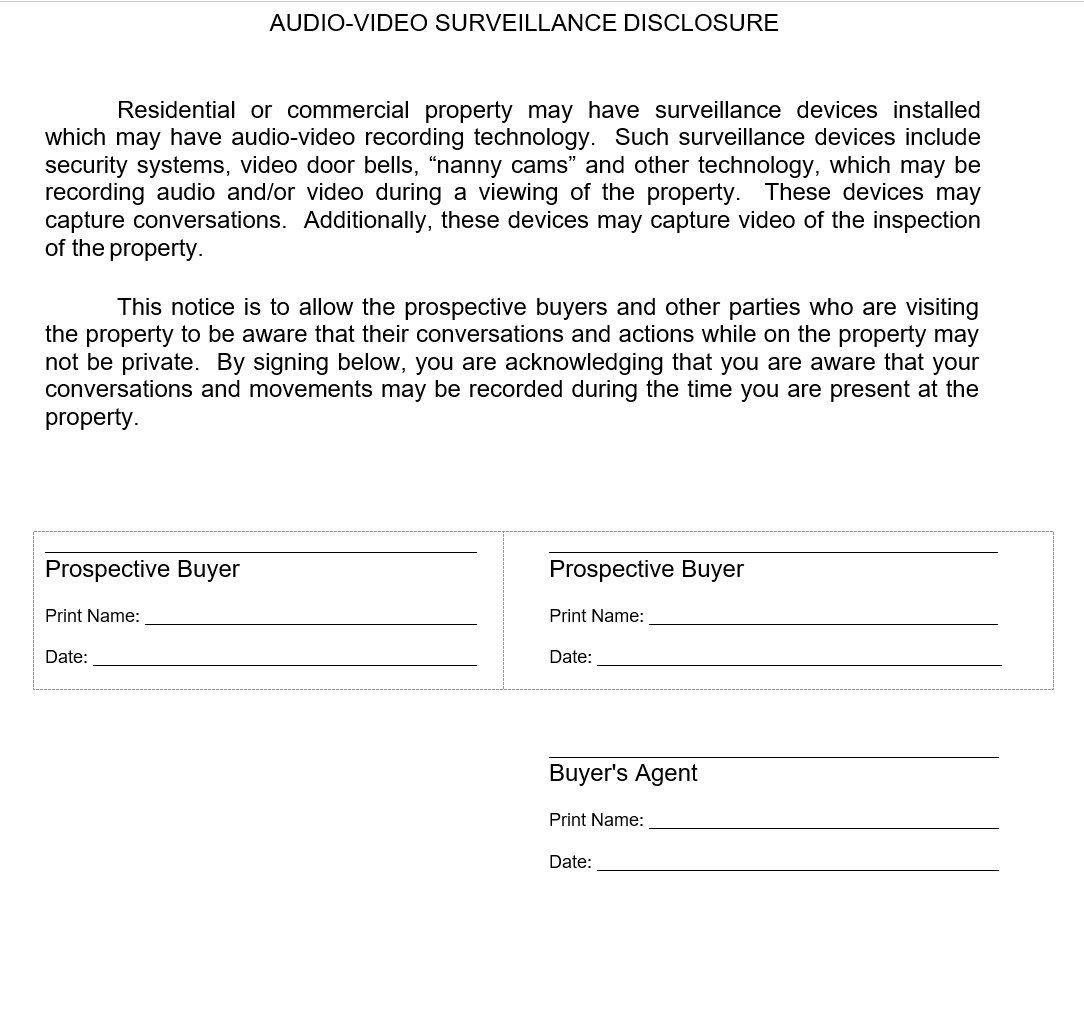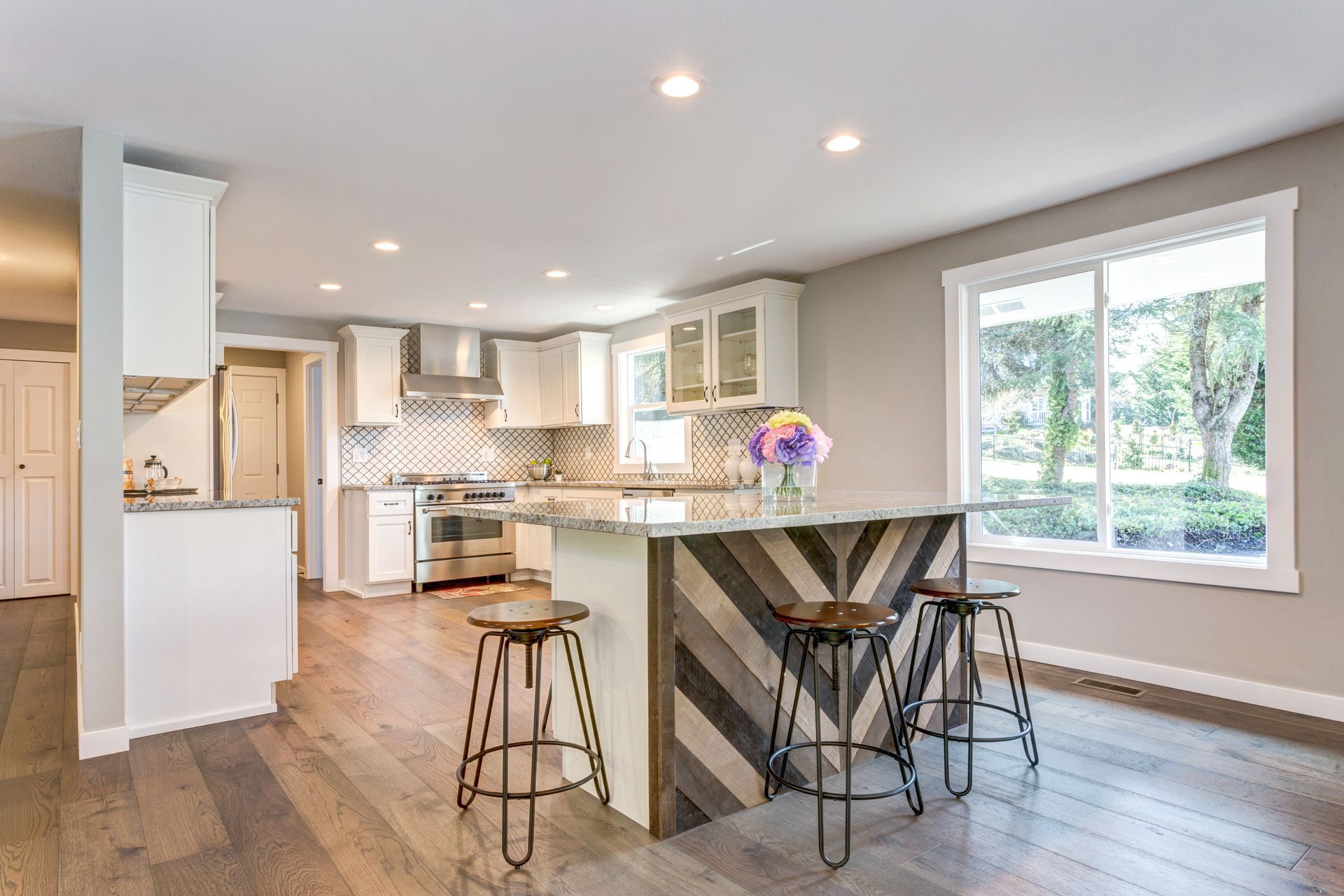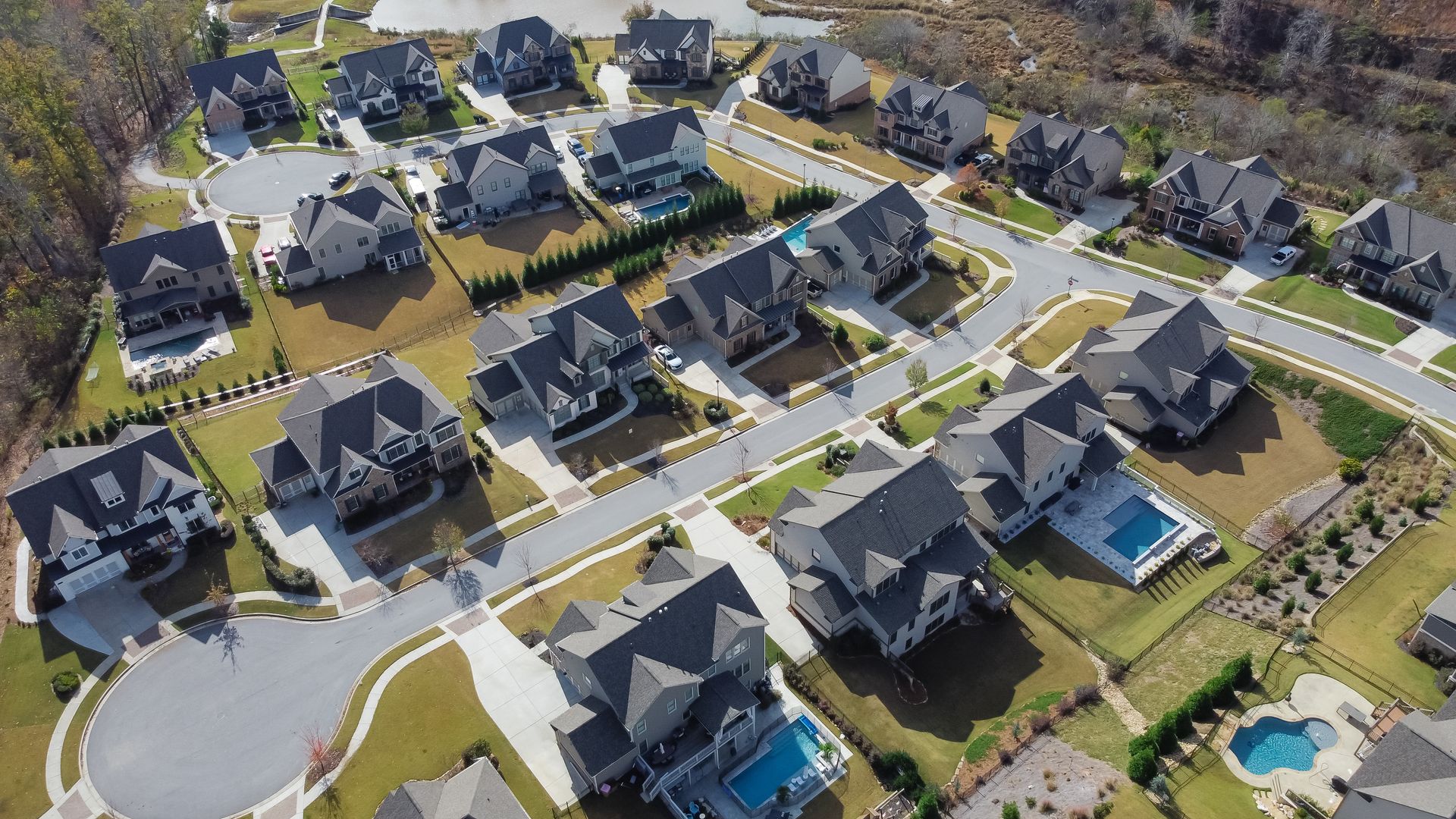Who is Watching Me?
LOUISIANA REALTORS • May 14, 2018

This article is provided for informational purposes only. Please contact your broker or legal counsel for advice regarding specific circumstances or incidents.
By: Baker, Donelson, Bearman, Caldwell & Berkowitz, PC
Patty McMurray and Natalie Maples
Many homes and buildings are now equipped with video and audio surveillance. Property owners may have video and audio cameras at their front entrances. They may also have security cameras inside the building or home, or on the perimeter of the property. For example, they may have a doorbell, a security system, a “nanny cam” or baby monitor that records video or audio, or, in some cases, all of the above.
Generally, a property owner has the right to monitor what happens within the four walls of his or her property. A prominently displayed surveillance system and/or conspicuous signs alerting visitors that a system is in use can deter would-be criminals from taking an owner’s personal belongings. However, in the context of selling a home, they can also provide negotiating advantages to sellers: these surveillance devices may allow sellers to intercept conversations between prospective buyers and the buyer’s agent.
What obligation, if any, does a property owner have to notify their REALTOR® of the recording devices? What obligation, if any, does a REALTOR® have to notify potential buyers that video or audio equipment may be recording them while they are viewing a listing?
STATE AND FEDERAL LAW
Both federal and state laws apply to audio and video surveillance. Louisiana is a “one party consent” state. This means that a person may intercept communications in two instances: 1) if the person recording the communication is a party to the communication being intercepted, or 2) if the person doing the recording is not a party to the communication, one of the parties to the communication has given prior consent to the interception of the communication.[1] However, the recording is not permitted by Louisiana law if the audio or video recording is being done for the purpose of committing a crime or a tortious act.[2]
Video surveillance without an audio recording has a different standard than recordings with both audio and video. The federal standard for evaluating video-only surveillance is whether an individual would have a reasonable expectation of privacy in the location where the recording is taking place. Although a homeowner enjoys a “zone of privacy” in their own homes, a prospective buyer generally does not have an expectation of privacy in someone else’s home. There are limits to this, however, as a potential buyer would not expect to be recorded while in the bathroom, where a reasonable expectation of privacy exists in any circumstance.
Louisiana law does not expressly prohibit the video recording or recording the image of someone unless that video or image is recorded without consent and the video is to be used for a lewd or lascivious purpose.[3] Accordingly, a videotape without audio is generally permissible under Louisiana law without providing advance notice or obtaining the consent of the parties.
There are no Louisiana or Federal cases on point wherein an unsuspecting homebuyer's conversation has been recorded and used in negotiations. There have been some cases where conversations of buyers and/or their agents are intercepted through “pocket dialing”[4] but these cases are distinct from the issue of a property owner’s right to maintain video or audio recording on his or her property. However, out of an abundance of caution, and to avoid a potential claim that an illegal or unethical recording was made, or a claim that ethical obligations were violated intercepting conversations of buyers, homeowners may want to disclose the presence of video surveillance devices on the property to potential buyers prior to a showing of the property.
LISTING BROKER
REALTORS® making audio recordings should generally be sure to obtain the permissions required under Louisiana state law. Listing brokers may want to inquire whether surveillance devices are present on the listed property and whether the surveillance devices record audio, video, or both.[5] REALTORS® may wish to include information such as the following in a listing agreement:
My property (check one) has does not have a video or audio surveillance device/system.
My device/system (check one) does does not capture audio.
Buyer’s agents may want to include the following in an exclusive representation agreement:
“I understand that I may be recorded during the time I am in the Seller’s property and consent to such recording.”
Once the REALTOR® knows that there are surveillance devices present on the property, if the surveillance devices record audio, the REALTOR® generally should disclose this knowledge with visitors to the property. This disclosure could be accomplished by posting notices on the property alerting all visitors to the property that they may be recorded during the visit or distributing a notice at the opens houses such as the one attached. There is no precise language required by law; however, here are a few examples of notices of surveillance devices on a property:
- Notice: This property is being monitored by surveillance equipment.
- Smile, and please talk clearly; you are being recorded.
- Welcome to my home. Recording equipment on the premises.
MLS DISCLOSURE
Another way to disclose the presence of surveillance devices would be to disclose such information in the MLS comment fields. Some MLS rules require a listing broker to disclose the presence of recording devices on a property.
BUYER'S AGENTS
Once the buyer’s agent is aware of recording devices present on the property, the buyer’s agent generally should inform their clients of the presence of recording devices. Buyer’s agents may consider making this disclosure to their clients in writing, such as in the attached notice. Although the buyer’s agent is generally not legally required to make the disclosure, as the buyer’s representative is not the one making the recording, such disclosure may help protect the agent from an allegation of an illegal or unethical recording by a client who later claimed to be unaware of a recording device.
As availability and use of technology of home audio and video systems increases, the laws around their use has struggled to keep pace. Disclosure of devices on the property is a good first step in making sure that information intended as private is not shared.
AUDIO-VIDEO SURVEILLANCE DISCLOSURE
Residential or commercial property may have surveillance devices installed which may have audio-video recording technology. Such surveillance devices include security systems, video doorbells, “nanny cams” and other technology, which may be recording audio and/or video during a viewing of the property. These devices may capture conversations. Additionally, these devices may capture video of the inspection of the property.
This notice is to allow the prospective buyers and other parties who are visiting the property to be aware that their conversations and actions while on the property may not be private. By signing below, you are acknowledging that you are aware that your conversations and movements may be recorded during the time you are present at the property.
[1] La. R.S. 15 § 1303(c)(3)
[2] A tort is a legal wrong committed upon the person or property independent of contract. It may be either (1) a direct invasion of some legal right of the individual; (2) the infraction of some public duty by which special damage accrues to the individual; (3) the violation of some private obligation by which like damage accrues to the individual. In the former case, no special damage is necessary to entitle the party to recover. In the two latter cases, such damage is necessary.
[3] La. R.S. 14 § 283(a)(1)
[4] Huff v. Spaw, 794 F.3d 543 (6th Cir. 2015)
[5] Finley Maxson, “Window to the Law: Video and Audio Surveillance,” National Association of REALTORS® (available online at https://www.nar.realtor/videos/window-to-the-law/window-to-the-law-video-and-audio-surveillance-issues).






